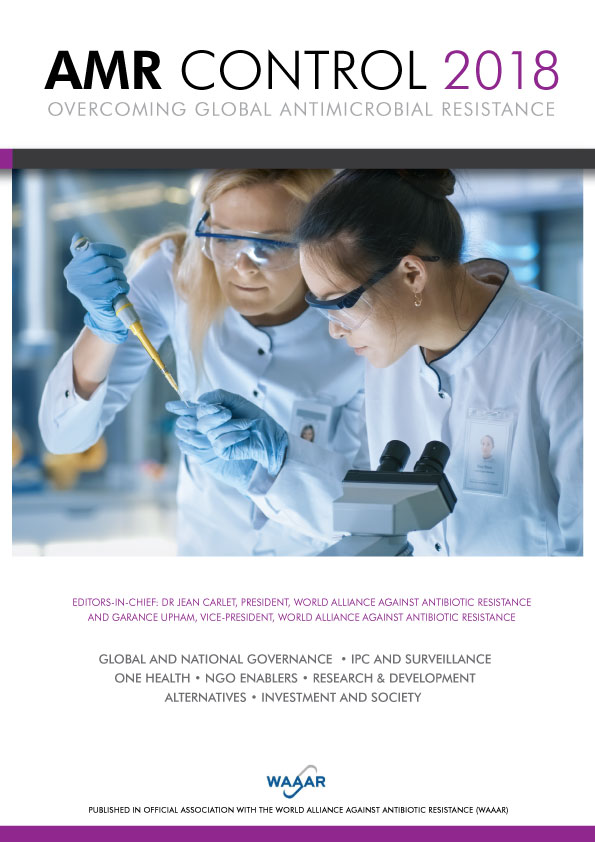Martin Bernhardt, International Public Affairs, Sanofi, Amandine Roux, International Public Affairs, Sanofi, Dr Debasish Roychowdhury, Head of Sanofi Oncology and Megan Thomas, Sanofi Oncology
Cancer is a noncommunicable disease (NCD) and a leading cause of death worldwide. In 2008, cancer accounted for 7.6 million deaths around the world, with 70% of those deaths occurring in low- and middle-income countries. Demand is increasing to address the growing needs of cancer patients, particularly in developing countries where cancer care and access to medicines is challenging. In fact, NCDs like cancer may represent an even greater obstacle to global development than infectious diseases. Sanofi understands this growing global health problem and considers access to health care for cancer and other NCDs a key priority today.
Cancer is the result of multiple causative factors over the course of a lifetime and requires a horizontal, integrated approach to care with the patient, family, and the entire community as active participants. This particular nature implies that existing paradigms for improving access to medicines do not provide sufficient answers because the full chain of structural obstacles has to be addressed. The development of medicines, availability in the countries, affordability, distribution, care provision and usage has to be integrated in the solutions offered.
Sanofi is already working to address these obstacles. Numerous initiatives are underway to address three key areas of focus – medical innovation, prevention and chronic disease management, and access to affordable health care. Overall, Sanofi believes that a person’s financial position should not determine whether or not she receives access to health care. The company seeks to provide solutions for both universal and specific patient needs at the global, regional and local level. These include international programmes that are vast in scope, as well as targeted initiatives designed to meet very specific local patient needs.
A global oncology division of experts was formed to ensure access to Sanofi cancer medicines and to build a diversified portfolio of innovative, personalized cancer treatment solutions. A significant commitment is put behind Sanofi research and development in oncology. In many developing regions, cancers are often unique and understanding the disease leads research toward better treatment solutions. To this end, several R&D initiatives are underway and Sanofi partners with some of the top cancer experts in these regions to better understand the needs of cancer patients in that part of the world. (see Box 1: Initiatives that further R&D in developing countries).
Beyond R&D, appropriate capacities are needed for access to health care and effective use. Therefore, Sanofi is involved in many capacity-building projects. For example, the company provides tools to help train health care professionals, inform communities and educate patients on prevention, diagnosis and treatment. Through a programme called “Oncology Academy,” Sanofi is working to strengthen human capacities regarding health care professionals in Egypt (see Box 2: Oncology Academy). Additionally, Sanofi takes a patient centred approach to cancer care. For the patient, learning that she has cancer is not only about diagnosis and treatment, but it becomes a traumatic life-altering experience. Sanofi in Morocco has set up a project in partnership with the Geneva University Hospital (Switzerland), to support the training of both nurses and doctors regarding the psychosocial aspects of cancer (see Box 3: Training oncologists and nurses in Morocco).
Cancer needs to be addressed with a proactive approach to increase chances of recovery and survivorship. Therefore, Sanofi’s action begins with prevention through awareness and screening programmes. (see Box 4: Giving life a chance) From a social and political standpoint, the cost burden regarding access to cancer care must be addressed. Sanofi takes a case-by-case approach and has initiated access programmes in partnership with local health care communities (see Box 5: Ashayein in India).
Finally, to further respond to public health challenges in developing countries, Sanofi engages in constructive conversation and cooperative collaboration with health care professionals, payers, governments, and nonprofit organizations around the world to help find sustainable solutions. One example of this is an initiative called “My Child Matters,” which is a partnership between the Sanofi Espoir Foundation and the Union for International Cancer Control (UICC) to fight against childhood cancer in developing countries where the paediatric oncology field is still emerging. (see Box 6: My Child Matters).
Indeed, cancer is and will remain a public health priority in the coming years, in order to avoid a heavy economic and social burden impact on developing economies. Sanofi is committed, through partnerships, to helping fill the oncology gap.
For more information about these and other Sanofi programmes, please contact Megan Thomas, megan.thomas@sanofi.com.
1.WHO website: http://www.who.int/mediacentre/factsheets/fs297/en/index.html 9



